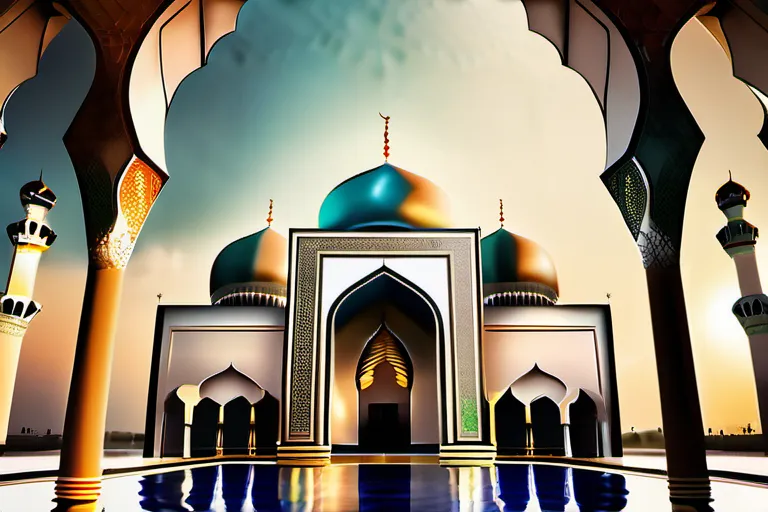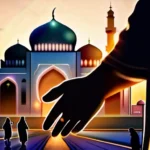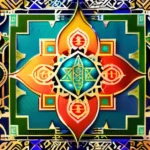Discover the fundamental beliefs and practices that form the basis of Islamic faith
In this enlightening article, we delve deep into the Five Pillars of Islam, essential tenets that define the lives of millions worldwide. From Shahada to Salah, Zakat, Sawm, and Hajj, we explore each pillar in detail, shedding light on their significance and importance.
The Declaration of Faith: Shahada
Imagine stepping into the heart of a bustling mosque, where the echo of testimony resonates through the air. The Shahada, the declaration of faith, is not just words spoken aloud; it’s a deep-seated commitment to a way of life that shapes every aspect of one’s being.
‘Ashhadu allaa illa Allah wa ashhadu an Naasama Mauhammad rasoolu Allah’—these are the Arabic words that encapsulate the essence of faith. But what do they truly mean? They declare the Oneness of God and the Prophethood of Muhammad, asserting that there is no god but Allah and Muhammad is His messenger.
The Shahada is like a cornerstone in a building; without it, the structure cannot stand tall. It’s the first pillar of Islam, setting the stage for all other practices. By reciting this declaration, one acknowledges not just an intellectual belief but also a deep emotional and spiritual commitment to the Islamic faith.
Recitation can vary slightly among different regions or sects, yet its core meaning remains unchanged. It’s a moment of personal reflection, where doubts and uncertainties are pushed aside, replaced by a profound sense of belonging and purpose. Isn’t it remarkable how such simple words can carry so much weight?
In essence, the Shahada is more than just a religious statement—it’s a life-changing affirmation that guides one’s actions, thoughts, and interactions with others. It’s about embracing a path that seeks to honor Allah through righteousness and compassion.
Daily Prayers: Salah
Imagine your daily prayers as the threads that weave together the fabric of your life, binding you to the divine and creating a tapestry of faith and devotion. In Islam, Salah—daily prayer—is not just a ritual; it is a profound connection between the believer and God. These five daily prayers are like the north star guiding you through the turbulence of life.
Each prayer serves as a reminder to pause, reflect, and reconnect with your purpose. From the dawn prayer (Fajr) that whispers the light of daybreak, to the midday prayer (Dhuhr) that marks the sun’s highest point, to the afternoon prayer (Asr) that marks the decline, to the sunset prayer (Maghrib), which bathes the earth in a golden hue, and finally to the night prayer (Isha), which settles into the darkness—each has its own unique significance.
But how does one maintain this consistent routine? Imagine your Salah as a garden that requires daily care. Just like watering plants ensures they flourish, regular prayers keep your faith alive and vibrant. Start small if needed; begin with just a few minutes of recitation each day, gradually increasing the duration until you find a rhythm that suits you. Seek guidance from local mosques or online resources for detailed instructions on how to perform the prayers correctly.
Remember, Salah is not merely about the ritual; it’s also about the intentions behind it. Make each prayer count by focusing on your sincerity and reflection. Just as a poet finds their muse in solitude, find your moment of quiet contemplation during prayer to connect with the divine.
In embracing Salah, you are not just following rules but nurturing a lifelong relationship with God. Each recitation is a step closer to understanding the profound wisdom and guidance found within Islam’s sacred practices. So, let us embark on this journey of daily devotion together, weaving our lives into the rich tapestry of Salah.
Charity and Social Welfare: Zakat
Charity and social welfare are at the heart of Islamic faith, often symbolized by one of the Five Pillars: Zakat. Zakat, derived from a root meaning ‘to purify,’ serves not just as an act of charity but as a means to purify wealth and hearts.
Imagine a river flowing through a parched land, nourishing the soil and bringing life where there was none. Similarly, Zakat is that lifeline, ensuring that resources flow into the hands of those in need, revitalizing communities.
The purpose of Zakat is threefold: it purifies wealth, strengthens the economy, and ensures social justice. By giving a portion of one’s savings to help the needy, Muslims contribute to a society where everyone has access to basic needs such as food, clothing, and shelter.
The benefits are manifold. For the recipient, Zakat provides essential support during times of need. But for the giver, it fosters humility, generosity, and faith in Allah. It’s like planting a seed that grows into a tree, bringing fruit to everyone who passes by.
To calculate Zakat, one must first determine their wealth or savings over the course of a year. A portion, typically 2.5%, is then given as Zakat. The specifics vary depending on local laws and community practices, but the principle remains constant: ensuring that resources are equitably distributed among all members of society.
Examples of charitable works supported by Zakat include funding education for underprivileged children, supporting healthcare services in underserved areas, providing loans to small businesses, and helping rebuild after natural disasters. Each act is a step towards creating a more just and compassionate community, much like a mosaic coming together to form a beautiful picture.
By embracing Zakat, Muslims not only fulfill one of the Five Pillars but also contribute to building a society where every individual’s dignity and well-being are valued. It’s about more than giving; it’s about transforming lives, one act of charity at a time.
Fasting during Ramadan: Sawm
Fasting during Ramadan: Sawm, is a sacred observance that transforms each day into a spiritual journey of self-restraint and devotion. Imagine fasting as a metaphorical cleansing, where every act of abstaining from food and drink serves to purify one’s soul. Why does the Prophet Muhammad (PBUH) recommend this practice? What are the deeper meanings behind this month-long discipline?
During Ramadan, Muslims abstain from dawn until sunset, engaging in a spiritual detoxification process that goes beyond physical hunger. This fast is more than just refraining from eating and drinking; it’s about controlling one’s desires, improving one’s character, and seeking forgiveness. The purpose of fasting isn’t merely to go without food but to experience the struggles of those less fortunate and to develop empathy.
The rules for observing Sawm are clear yet profound. Muslims wake up early before dawn (Fajr) to break their fast with Suhoor, a meal that nourishes both body and soul. During the day, they abstain from all food and drink until sunset, when Iftar breaks the fast with a simple but meaningful meal. This cycle of fasting is not just about the physical act; it’s an internal journey of discipline and spiritual reflection.
The cultural significance of Ramadan goes beyond its religious aspects. In many Muslim communities, this month becomes a time of togetherness, where families gather around the table for Iftar, sharing meals and stories. The nightly Taraweeh prayers in mosques bring people together in a sense of unity and shared devotion. This communal experience strengthens bonds and fosters a sense of community.
The spiritual benefits of Sawm are immeasurable. It is said that during Ramadan, the gates of heaven are opened, and the gates of hell are closed. Fasting is seen as a way to earn rewards from Allah and cleanse one’s sins. Many Muslims view this month as an opportunity to seek forgiveness and improve their relationship with God.
However, fasting isn’t just about religious observance; it’s also a chance for personal growth. It teaches patience, self-control, and humility. By reflecting on the struggles of daily fasts, one can gain perspective on life’s challenges and find strength in resilience. The discipline required during Ramadan can carry over into other areas of life, leading to overall personal development.
As we observe Sawm, let us not just see it as a month of fasting but as an opportunity for spiritual renewal and inner transformation. Through this practice, we find strength in our faith and deepen our connection with the divine.
The Hajj Pilgrimage: An Islamic Rite
The Hajj pilgrimage, an Islamic rite of passage that millions undertake each year, stands as a symbol of unity and devotion in the heart of Islam. Have you ever wondered what drives these pilgrims to brave the long journey to Mecca? The answer lies in the profound significance of the Hajj. This ritual is more than just walking through the holy sites; it’s a spiritual reawakening that connects each pilgrim directly with their faith and history.
Imagine standing within the vast plains of Mina, where millions from around the world converge. Each step taken in this sacred space carries a weight of centuries, representing the footsteps of prophets and saints who have walked these lands before you. The Hajj is not just about religious observance; it’s a living testament to the Islamic faith.
The journey itself is arduous but rewarding. Pilgrims must perform rituals such as circling the Kaaba seven times, standing in the plains of Arafat where they seek forgiveness and plea for mercy from God, and throwing stones at the pillars symbolizing the devil. These actions are deeply symbolic, representing a rejection of evil and a reaffirmation of one’s commitment to Islam.
The experiences of modern-day pilgrims are varied but unified in their profound impact. Many return with a renewed sense of purpose and a deeper understanding of their faith. The spiritual impact of the Hajj is immense, offering an opportunity for individuals to cleanse themselves of sins and seek forgiveness from God. It’s a journey that challenges the pilgrim not only physically but also spiritually, making each step a testament to their resolve.
As you reflect on the significance of the Hajj, consider how this pilgrimage serves as a powerful reminder of the interconnectedness of the global Muslim community. The shared experience transcends borders and cultures, fostering a sense of unity among Muslims worldwide. This pilgrimage is a beautiful metaphor for the Islamic concept of Ummah, where believers are united in their faith and strive for mutual support and cooperation.
The Hajj is more than just an annual event; it’s a profound act of worship that reinforces the core values of Islam. By participating, pilgrims not only fulfill one of the five pillars but also embark on a transformative journey that enriches their spiritual lives and strengthens their connection to the divine.
The Role of the Ummah and Islamic Society
The concept of Ummah is like a vast, interconnected web that binds Muslims around the globe. It’s not just about shared faith; it’s a brotherhood and sisterhood forged in the fire of Islam. Imagine this Ummah as a towering tree, with its roots deeply embedded in the earth and its branches stretching towards the heavens. Each leaf represents an individual Muslim, contributing to the strength and beauty of the whole.
The role of the global Muslim community, or Ummah, is vital to the fabric of Islamic society. Just as Islam teaches us that all humanity is equal before God, so too does it emphasize the importance of solidarity and cooperation among believers. Muslims are called upon to support one another in times of need, just as one would help a member of their own family.
How can we truly embody this spirit of brotherhood? By extending a helping hand to our neighbors, whether they be fellow Muslims or not. By fostering an environment where everyone feels valued and included, regardless of their background or social status. Can you imagine a world where such principles were universally applied? It would transform societies from within, making them more compassionate and just.
Solidarity among Muslims is also about standing together in times of adversity. Just as the branches of our tree unite to weather storms, so too must we support each other against external threats or internal divisions. This unity can be seen during Hajj pilgrimages, where millions of Muslims from diverse backgrounds come together in Mecca for a shared spiritual experience. It’s a powerful reminder that despite differences, we are all part of one great Ummah.
In essence, the concept of Ummah goes beyond mere religious practice; it is a call to action. By nurturing this sense of community and cooperation, Muslims can make a significant impact on both their local communities and the world at large. Could you imagine what our society might look like if we embraced these principles more fully?
Conclusion
 By understanding the Five Pillars of Islam, you will gain a deeper appreciation for this rich and diverse faith. Whether you are a Muslim seeking to reinforce your knowledge or a non-Muslim curious about Islamic beliefs, this guide is here to provide valuable insights.
By understanding the Five Pillars of Islam, you will gain a deeper appreciation for this rich and diverse faith. Whether you are a Muslim seeking to reinforce your knowledge or a non-Muslim curious about Islamic beliefs, this guide is here to provide valuable insights.











